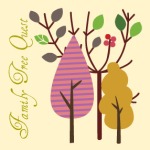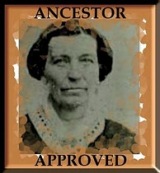Footnote.com is making available black history records and documents for free with registration. They have partnered with Lowcountry Africana to make this possible.
Here is the announcement:
SALT LAKE CITY – July19, 2010
Today Footnote.com (www.footnote.com) and LowcountryAfricana (www.lowcountryafricana.net) announced the launch of a new free collection of historical records from the South Carolina Department of Archives and History containing estate inventories and bills of sale for Colonial and Charleston, South Carolina from 1732 to 1872. FamilySearch International donated the copies of the microfilm of the original historical documents.
Charlestons role as a port of entry during the Atlantic Slave Trade means many thousands of African Americans may have ancestors who came from, or through, South Carolina. This new collection on Footnote.com will assist African American genealogy research by forming, in many cases, a seamless paper trail from Emancipation to the 1700s.
“Research about African American history and genealogy has often been especially difficult because of limited access to primary source material,” says Henry Louis Gates Jr., Director of the W. E. B. Du Bois Institute for African and African American Research.
“Footnote.com is spearheading a revolution in access to the black past by digitizing major portions of the black archive, and making these records available on the Internet. The publication of these records from South Carolina in the eighteenth and nineteenth centuries is the latest example of their bold commitment to resurrecting the African American past.”
Footnote.com provides an experience where visitors can access historical records and interact with those records and members of the Footnote community.
Visitors to Footnote.com can enhance these records from the South Carolina archives through various activities including:
Creating and sharing webpages about the documents and their discoveries
Adding their own insights and comments to the documents
Uploading and connecting their own photos, letters and documents
Annotating information on the documents, which creates a searchable database
“We are excited that Footnote has joined this collaboration because they offer family historians the ability to turn public records into personal history, said Toni Carrier, Founding Director of Lowcountry Africana. “Nowhere else on the Internet can readers interact with historical records in such a meaningful way.”
“South Carolina has one of the richest sets of early government records of social and cultural history,” said Charles Lesser, Senior Archivist at the South Carolina Department of Archives and History. “This new cooperative effort will revolutionize access to an especially important segment of those records.”
To view these South Carolina records, please visit Footnote.com.
About Footnote, Inc.
Footnote.com is a subscription website that features original historical documents, providing visitors with an unaltered view of the events, places and people that shaped the American nation and the world. At Footnote.com, all are invited to come share, discuss, and collaborate on their discoveries with friends, family, and colleagues. For more information, visit http://www.footnote.com.
About Lowcountry Africana
Lowcountry Africana, sponsored by the Magnolia Plantation Foundation of Charleston, South Carolina, is a free website dedicated to African American genealogy and history in South Carolina, Georgia and Florida,home to the rich Gullah-Geechee cultural heritage. The entire content of Lowcountry Africana is, and always will be, 100% free.
***** ***** ***** *****
Disclosure of Material Connection: I have not received any compensation for writing this post from Lowcountry Africana. I am happy to be an affiliate of footnote.com. Some of the links in the post above are “affiliate links.” I am disclosing this in accordance with the Federal Trade Commission’s 16 CFR, Part 255: “Guides Concerning the Use of Endorsements and Testimonials in Advertising.”










